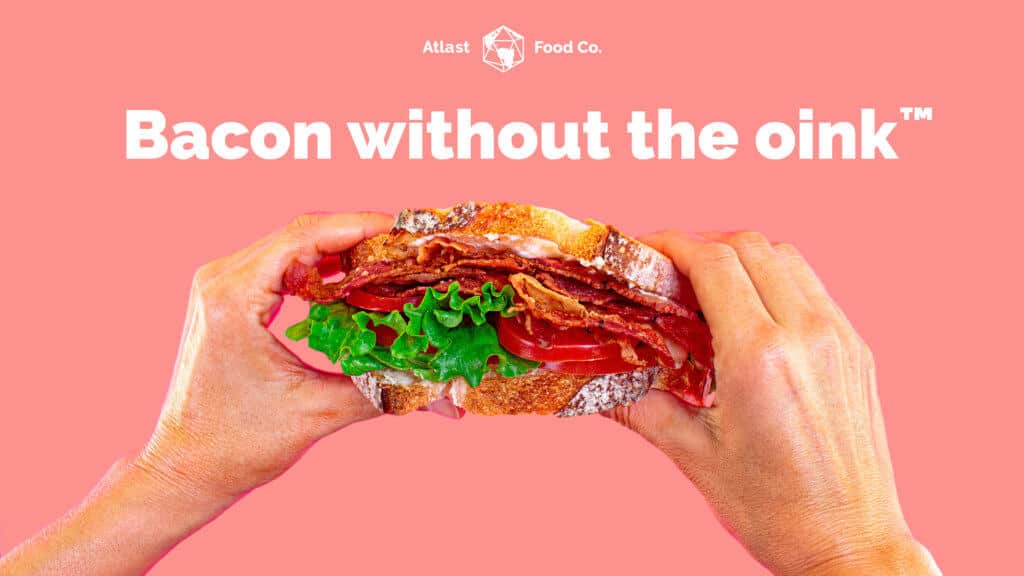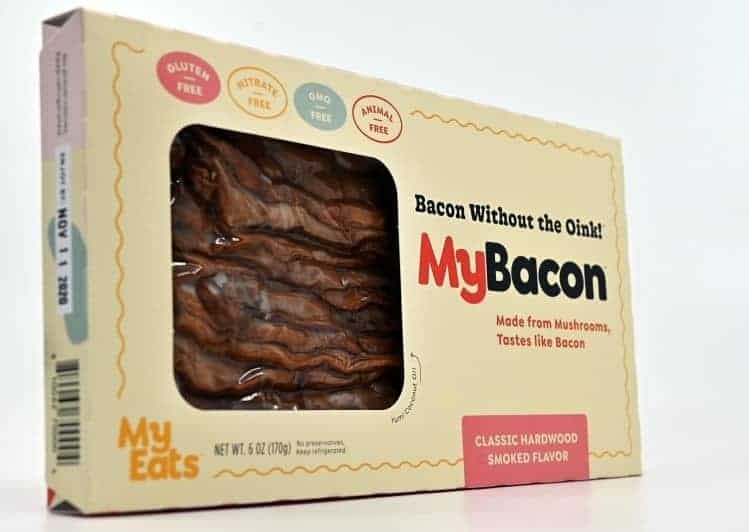- Atlast Food’s partnership with Whitecrest Mushrooms will bring MyBacon strips to market over 2022
Atlast Food Co. – the mycelium-based alt meat specialist – has announced a new partnership with Whitecrest Mushrooms Ltd. to produce Atlast’s MyBacon strips at commercial scale. The move follows a successful trial with Ecovative’s AirMycelium technology, which allows for whole-cut alt meat mycelium products.
Atlast is an affiliate of Ecovative – a market leader in mycelium technologies headed by Eben Bayer– whose technology allows the creation of such whole-cut mycelium-based products as Atlast’s MyBacon strips. Mycelium is the vegetative root structure of mushrooms, containing complete proteins that mimic traditional meat cuts in both texture and flavor.

Whitecrest is a high-tech mushroom producer based in Canada and the partnership will see the construction of a dedicated farm to produce close to three million pounds of MyBacon mycelium annually. Using vertical technologies, this will be achieved on less than an acre of land, with the opportunity to increase this production in 2023.
MyBacon scale-up
MyBacon strips are currently available for purchase at Honest Weight Food Co-op in Albany, NY, however, more widespread availability is now planned for 2022 following the new partnership. The company recently secured $40 million from investors including Robert Downey Jr.’s Footprint Coalition Ventures, in order to develop the world’s largest vertical mycelium farm in New York’s Hudson River Valley.

“Our partnership with Whitecrest and Ecovative will bolster the growth of Atlast to address the critical needs of an expanding alternative-meat market,” stated Steve Lomnes, Chief Operating Officer of Atlast Food Co. “It will not only enable us to put more MyBacon strips onto the plates of consumers but unlock a sustainable solution to producing food in a way that is beneficial to our entire ecosystem.”





